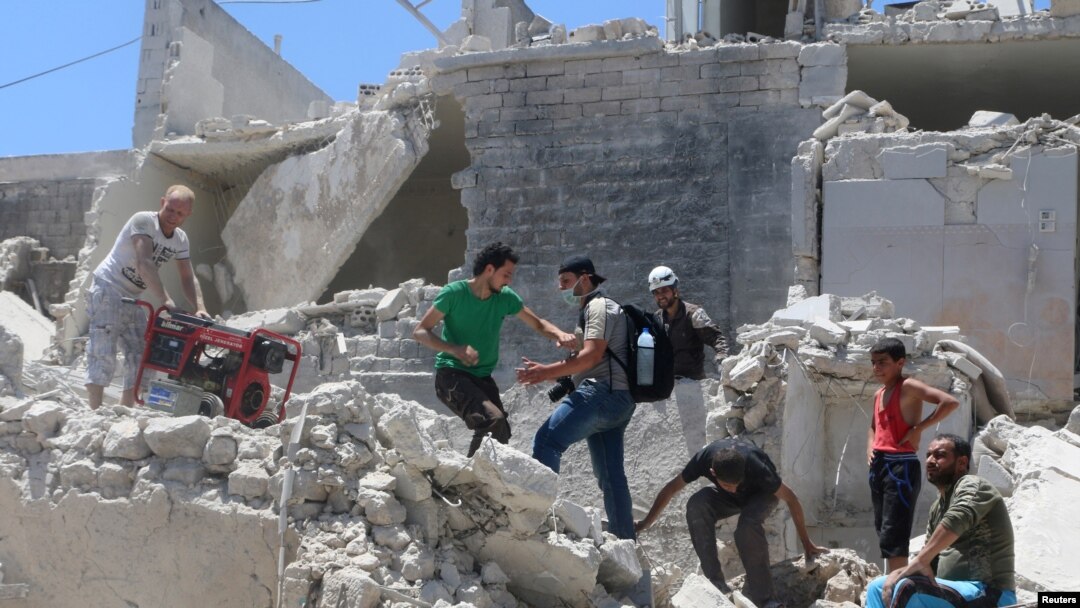United Nations officials accuse the Syrian government of President Bashar al-Assad of denying medical aid to hundreds of thousands of civilians trapped in besieged areas. The officials say people are dying for lack of medicines and treatment.
A special adviser on Syria, Jan Egeland, says progress, although not enough, is being made in providing food and other relief to hundreds of thousands of Syrians in besieged areas.
Egeland, however, says the United Nations and partner aid agencies have failed to provide medical care to all Syrian civilians in need in the war-torn country. He says too many people are malnourished and even starving because of lack of food; however, he notes the biggest killer is lack of medical services.
“People are bleeding to death inside these areas ," Egeland said. " One third of the war-wounded are women and children. It is not fighters; It is women and children and they are bleeding to death because they cannot be evacuated or they…are dying because they get insufficient aid because there are no doctors there, there is no surgical equipment there. They may even die because they are attacked in their beds in hospital.”
The Assad government has long said that it allows U.N. humanitarian deliveries to besieged areas. But aid workers on the ground say that is frequently not true, with government forces barring trucks from reaching affected areas, leading western powers to occasionally airdrop emergency supplies.
A World Health Organization survey of 19 countries in 2014 and 2015 found that the largest number of attacks against medical facilities and health workers has occurred in Syria.
The WHO director in Syria, Elizabeth Hoff, criticized the targeting and destruction of medical facilities and lack of protection for health workers. She says Syrians in besieged areas also are being denied medical care because the government removes medical items from aid convoys.
“It is particularly disturbing to us that surgical equipment, burns - you know that are mostly affecting civilians - are continuing to be removed from convoys, as well as antibiotics, analgetics," Hoff said. "So, people, if they are not properly treated, cannot even die in peace because they are not receiving the necessary painkillers and palliative care that is needed in many of the besieged areas.”
The United Nations has set August 1 as a deadline for restarting the Syrian peace talks. U.S. Secretary of State John Kerry is meeting with Russian President Vladimir Putin in Moscow Thursday.
The U.N. special envoy for Syria, Staffan de Mistura, says these world powers were instrumental in getting a new round of Syrian peace talks started in March. He says he hopes their meeting will be as effective in getting them back on track.


